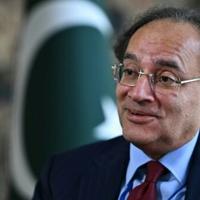In November, Pakistan aims to finalize the delayed privatization of its flag carrier and the outsourcing of Islamabad’s international airport, according to the country’s finance minister. Muhammad Aurangzeb, who assumed office earlier this year, discussed these plans with AFP at the World Bank’s headquarters in Washington, where he is participating in the annual meetings of the International Monetary Fund and the World Bank.
During an earlier interview with AFP in April, Aurangzeb had expressed hope that the privatization of Pakistan International Airlines (PIA) could be completed by June 2024. However, speaking on Wednesday, the finance minister attributed the five-month delay to two main factors: ensuring macroeconomic stability and conducting thorough due diligence on interested parties.
Aurangzeb emphasized the importance of scrutinizing potential bidders for both PIA and Islamabad airport before making any decisions. He mentioned that the cabinet approved an extension in the timelines to allow interested parties to complete their due diligence.
– Brink of default –
Aurangzeb highlighted that Pakistan had fallen behind on existing profit and dividend repayments when the current government came into power. However, the country has since made progress on macroeconomic stability, averting a default situation last year amid economic challenges.
He also mentioned that inflation has decreased significantly, and the country has received financial support from the IMF, with a recent approval of a $7 billion loan. Aurangzeb shared updates on Pakistan’s current account deficit, stabilization of the Pakistani rupee, and the country’s gross public debt standing at 69% of GDP.
– ‘Saturation point’ –
As part of the IMF deal, Pakistan is focused on privatizing state-owned enterprises, expanding its tax base, and reforming the power sector. Aurangzeb underscored the need to address issues related to tax evasion, corruption, and leakage in these areas.
He refuted claims that the government was not serious about broadening the tax base, citing a 29% increase in tax collection in the last fiscal year. The finance minister emphasized the importance of increasing the number of tax-paying individuals in the country and targeting specific sectors like real estate, retail, and agriculture for taxation.





